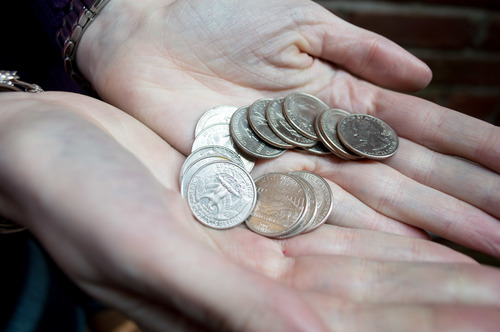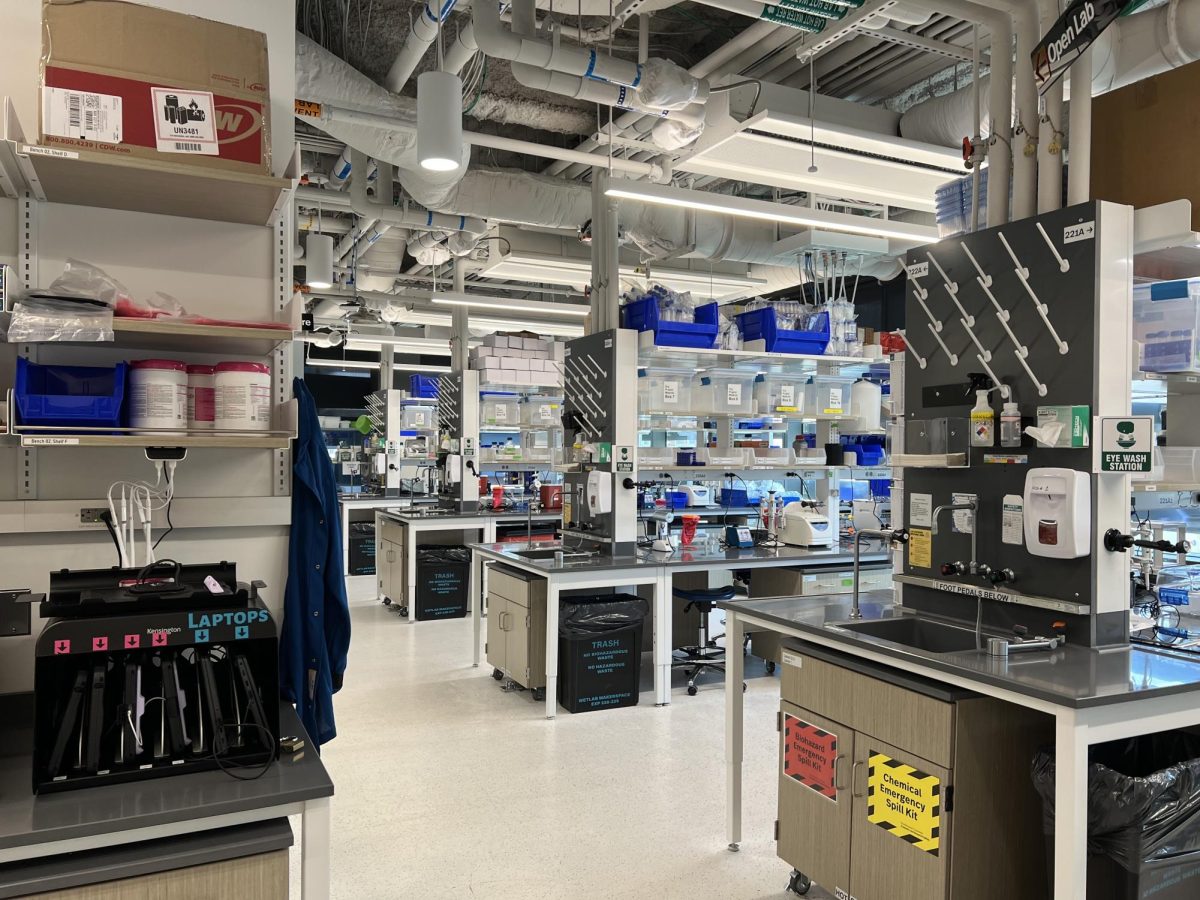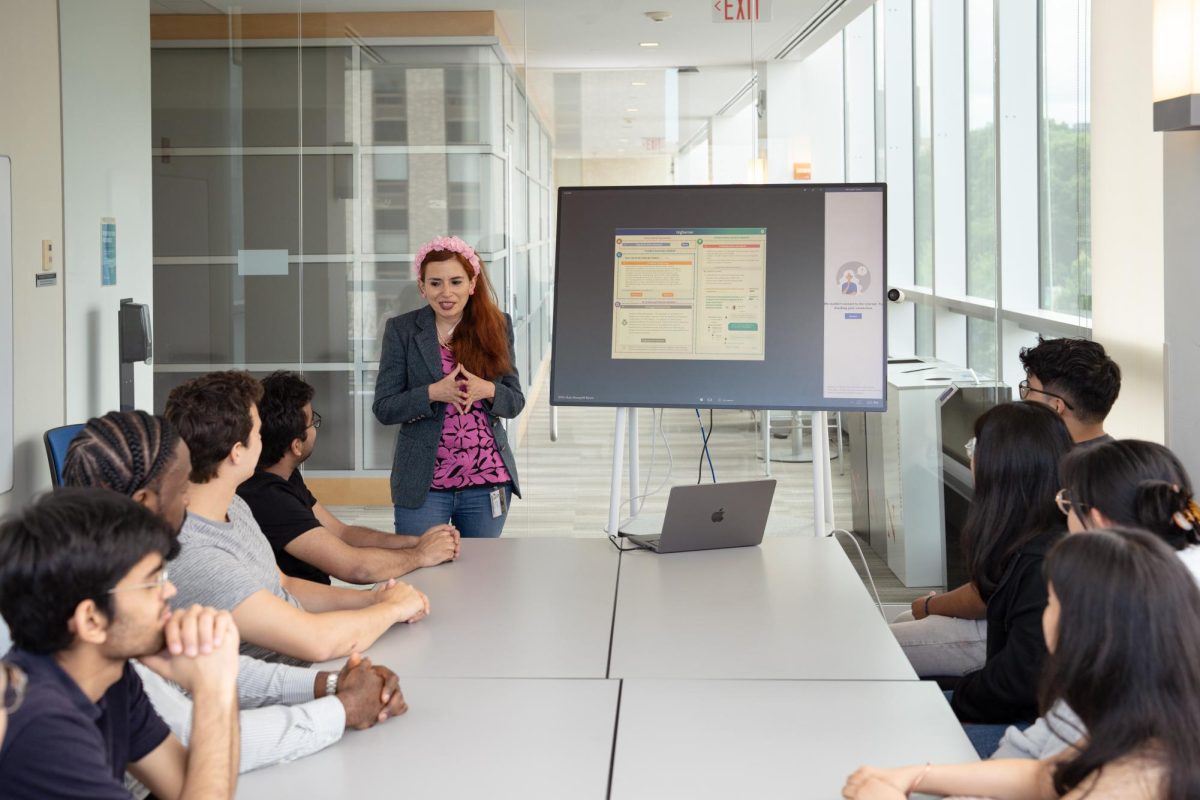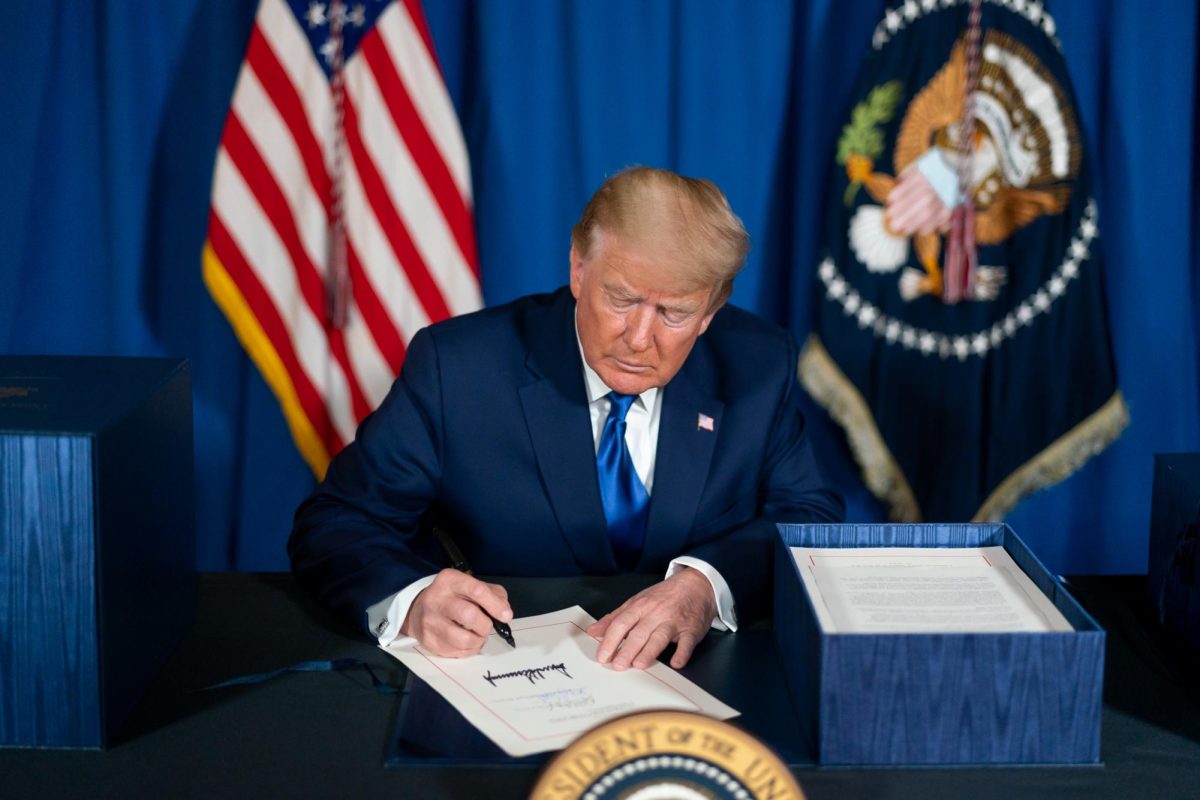By Vanessa Nason, news correspondent
For 50 million Americans suffering from an autoimmune disease, day-to-day life can be a struggle in and of itself, but Northeastern senior Lilly Stairs turned that hardship into an opportunity to help others.
After being diagnosed with two diseases, Psoriatic Arthritis and Crohn’s Disease, Stairs chose to spend her time helping those in similar situations. As a result, she and her 12–member team created 50 Cents for 50 Million, a campaign working to raise awareness for autoimmune diseases, to offer moral support to the patients and to collect funds for cures, with all of the proceeds going to the American Autoimmune and Related Diseases Association (AARDA).
“I literally woke up one morning and couldn’t move,” Stairs said. She was paralyzed by a terrible pain that surged through her entire body with every movement. It was the summer of 2011, Stairs was 19-years-old and suddenly, she became one of the 50 million.
Stairs was diagnosed with Psoriatic Arthritis, a condition that initially left her completely reliant on her mother. While she was eventually well enough to attend school again, she still found herself in a daily battle against her symptoms. Then, in January 2012, Stairs was back in the hospital, this time with severe stomach pains.
“I couldn’t even swallow water without feeling extreme pain,” she said. She was admitted to the hospital and found to have bleeding ulcers in her small intestine, a sign of Crohn’s Disease.
Rather than lament her unfortunate situation, Stairs set her sights on taking an activist approach.
“Since I was in my hospital bed, I knew that I wanted to do something to raise awareness,” she said.
This ambition led the the 50 Cents for 50 Million Campaign. Comprised of a group of undergraduates and graduate students from Northeastern University and Emerson College undergraduates, the endeavor has grown exponentially and attracted monetary sponsorships from companies like Genzyme and Scion, as well as Northeastern.
“Lilly’s enthusiasm and passion is infectious,” Catherine Ternes, the campaign’s events director and a Northeastern senior international affairs and political science major, said. “The people we work with are young students and professionals with insane schedules and demanding work, but they somehow manage to do it all and do incredible work for the campaign. I continue to feel supported and inspired by them, which makes working for the campaign an easy decision.”
Scion, which donated $1,000 to the AARDA, also donated additional money that Stairs and her team used for gifts for patients at Boston Children’s Hospital and the Boston Home.
The tour started on Sunday, Jan. 25 with Tessa LeBlanc, a 15-year-old living with Hashimotos, Autoimmune Hepatitis and Addison’s Disease. In the week following, they visited various individuals and institutions such as Boston Children’s Hospital and the Boston Home, bringing gifts and words of encouragement.
“I would have to say my favorite is the home visits,” Meredith Carling, the campaign’s executive immunity assistant and Stairs’ roommate, said. “It has been so touching to interact with families who struggle with autoimmune diseases and to hear their stories and how they support one another.”
Stairs’ campaign is holding a series of events over the next few months to continue raising money, culminating with its largest event, the Laugh for Immunity Comedy show on March 25.
The show at Laugh Boston is due in part to Stairs’ connection with John Tobin, the vice president for city and community affairs at Northeastern. Stairs met Tobin while in the Student Government Association (SGA) last year, and he immediately decided to persue her idea for an autoimmune disease campaign.
“He really helped get me off the ground,” Stairs said.
Tobin aided her campaign’s connection to the community and, as part owner of Laugh Boston, facilitated the event in March.
The Comedy Show is part of Autoimmune Disease Awareness Day, the first time the awareness day has been hosted in Boston.
“I think it’s going to be a wonderful celebration of strength, joy and the power of community,” Ternes said.
Over 80 percent of Americans can’t name an autoimmune disease even though there are over 100 illnesses in this category, as according to Stairs.
“Lilly was the first person I was close with [that] had an autoimmune disease… or so I thought,” Ternes said. “As you find doing work with these diseases, they are much more common than you think.”
Stairs hopes her campaign will change this lack of awareness and bring recognition.
“Seeing Lilly suffer when her disease was not in remission was very difficult because it was so severe, and also another close friend has had tremendous troubles battling an autoimmune disease, with the doctors taking nearly four years to correctly diagnose her,” Carling said. “These are the reasons I believe awareness, knowledge, support and research need to be revolutionized in regards to autoimmune disease.”
50 Cents for 50 Million focuses on the broad category of autoimmune disease, hoping to influence the way Americans think about the issue and bolster efforts to find a cure.
“The root cause of these illnesses is one in the same,meaning that a cure for one has the potential to mean a cure for all,” Stairs said.
When looking at the 50 million statistic, Stairs realized that if everyone just gave 50 cents, those living with an autoimmune disease could be cured. It’s a small favor to ask, with a potentially extraordinary outcome.
Stairs, who will be in remission for one year this October, is upfront about the reality of her diseases.
“They are chronic, so I will have them for the rest of my life,” she said.
Photo courtesy Emma Kurman-Faber, 50 Cents for 50 Million









